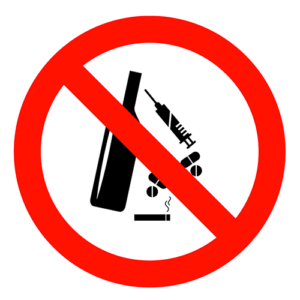Do you dread waking up in the morning? Does the thought of another day filled with responsibilities and obligations fill you with dread? If so, then you are not alone. Many people suffer from morning depression, which can make getting out of bed an incredibly difficult task. In this blog post, we will discuss the causes of morning depression and offer some tips for how to deal with it.
Contents
What Is Morning Depression?
 Morning depression is a type of depression that is characterized by feeling low and anxious in the morning. This condition is simply a symptom of depression, but it can be a very debilitating one. For many people, the morning is the worst part of the day.
Morning depression is a type of depression that is characterized by feeling low and anxious in the morning. This condition is simply a symptom of depression, but it can be a very debilitating one. For many people, the morning is the worst part of the day.
However the reason behind this is not yet known, it is speculated that hormonal changes may play a role. Depression is also more common in people who have a family history of the condition. If you are someone who suffers from morning depression, there are things that you can do to make the condition more manageable.
If we talk about the prevalence of morning depression, it is said to be more common in women. This is because of the hormonal changes that take place in a woman’s body. These hormonal changes can trigger the symptoms of depression.
However, there are other things too that can trigger or cause people to have morning depression. Nonetheless, there are treatments available for this condition and with the help of these treatments, people can manage their morning depression in a much better way.
Is Waking Up Early A Symptom Of Depression?
The answer is maybe. A lot of people who suffer from depression find that their symptoms are worse in the morning. This is sometimes called “morning depression.” There are a few possible explanations for why this might be.
One theory is that it has to do with changes in levels of certain chemicals in the brain during the early hours of the day. For example, levels of the hormone cortisol tend to be higher in the morning. This can lead to increased anxiety and make it harder to concentrate.
Another possibility is that morning depression is linked to changes in the body’s circadian rhythm (the “body clock” that regulates our natural sleep-wake cycle). Depression can disrupt the circadian rhythm, which can make it difficult to wake up in the morning and contribute to fatigue throughout the day.
If you think you might be experiencing morning depression, there are a few things you can do to try to improve your symptoms. So do not feel discouraged, there are ways to ease the morning blues. Just keep patience and faith, the sun will rise again.
How To Recognize It?
 At first, it might seem difficult to identify morning depression. After all, we’re all a little grumpy in the morning, right? But there’s a big difference between being a little grouchy and feeling depressed.
At first, it might seem difficult to identify morning depression. After all, we’re all a little grumpy in the morning, right? But there’s a big difference between being a little grouchy and feeling depressed.
The main symptom of morning depression is an overwhelming feeling of sadness or despair upon waking up. This feeling may be accompanied by:
- Fatigue
- Irritability
- Anxiety
- Difficulty waking up
- trouble getting out of bed
- Intense agitation and frustration
- Feeling of emptiness
- Headaches
- Body aches and pains
- Appetite changes
These signs and symptoms can make it hard to carry out your usual activities. You should understand and analyze your feelings, in order to better cope with them. On the other hand, if you’re feeling depressed all day, every day, it might be clinical depression, which requires professional help.
Why Do I Feel Worse In The Morning?
 There are a few reasons why you may feel worse in the morning. Let’s outline and discuss a few of them.
There are a few reasons why you may feel worse in the morning. Let’s outline and discuss a few of them.
Sleep patterns
First, this can be the foremost reason for feeling down in the morning. If you don’t typically get a good night’s sleep, or you have insomnia, it can lead to feeling tired and sluggish in the morning. This can be a difficult cycle to break out of because being tired can lead to depression, and being depressed can make it hard to fall asleep at night.
Negative thinking
It’s important to understand that depression is often characterized by negative thinking patterns. These thoughts can be about yourself, your life, or the world around you. If you’re used to having negative thoughts first thing in the morning, it can make your mornings feel worse.
Certain medications
Sometimes, certain medications cause you to feel depressed in the morning. Because medications are metabolized differently in everyone, it’s hard to say which ones will affect you and how. If you think your medication is causing morning depression, talk to your doctor. They may be able to adjust the dosage or switch you to a different medication.
Shift work
Your shift work largely impacts your morning routine and makes it difficult to find a rhythm. For example, if you work the night shift, you may find it hard to sleep during the day. If you work early mornings, you may not be able to get enough sleep at night. This can lead to feeling exhausted and depressed in the morning.
New parenthood
When somebody becomes a parent, their life changes in almost every way imaginable. They have to think about somebody else 24/seven, they don’t get nearly as much sleep, and their free time becomes a thing of the past. It’s no wonder that so many new parents suffer from depression.
Grief
 Grief seems an obvious cause of morning depression, as this is the time of day when people are most likely to think about loved ones who have died. The death of a spouse, for example, can lead to morning depression that lingers for months or even years. Grieving the loss of a job, a pet, or anything else that was important to you can also cause this type of depression.
Grief seems an obvious cause of morning depression, as this is the time of day when people are most likely to think about loved ones who have died. The death of a spouse, for example, can lead to morning depression that lingers for months or even years. Grieving the loss of a job, a pet, or anything else that was important to you can also cause this type of depression.
All in all, these are very common and primary causes of this depression. Along with these, some risk factors can develop morning depression or make it worse. These include:
- Isolation: If you’re not connecting with others, it can heighten feelings of sadness and loneliness.
- An unhealthy diet: What you eat affects how you feel. Eating a lot of sugar, for example, can cause blood sugar highs and lows that contribute to moodiness.
- History of depression: If you’ve had depression in the past, you’re more likely to experience it again.
- Chemical imbalance: This is a theory that’s been around for a long time and is still being debated. Some experts believe that a chemical imbalance in the brain can cause depression.
- Stress: Chronic stress can lead to morning depression.
These are almost like symptoms in a way, as they are things that can make depression worse. But, they don’t necessarily cause it. To get rid of morning depression, you need to find the root cause and address that. With time, you can manage morning depression and make it more manageable.
How Does It Impact Everyday Life?
For many people, morning depression can be the most difficult part of the day. It can make it hard to get out of bed and start your day. That further impacts your ability to get things done and can lead to a sense of isolation and loneliness. Some common consequences are listed below:
- Difficulty getting out of bed in the morning
- Feeling tired all-day
- Lack of motivation and interest in activities
- Difficulty working or completing schoolwork
- Isolation and loneliness
- Lack of confidence
- Difficulty maintaining relationships
These can make it difficult to do anything, let alone the things you need or want to do. It’s easy to see how this can lead to a feeling of loneliness and isolation. When you’re not able to participate in activities that you once enjoyed, it can be hard to maintain relationships. This can make you feel even more alone.
If you’re struggling with morning depression, know that you’re not alone. It’s a common problem that many people face. But there are things you can do to ease the symptoms and make the mornings less difficult.
How Morning Depression Is Diagnosed?
 If you feel like you’re struggling with morning depression, it’s important to talk to your doctor. They can help you figure out if what you’re experiencing is actually depression or just a case of the “blues.” To make a diagnosis, a professional can use some methods, these are:
If you feel like you’re struggling with morning depression, it’s important to talk to your doctor. They can help you figure out if what you’re experiencing is actually depression or just a case of the “blues.” To make a diagnosis, a professional can use some methods, these are:
- Asking about your symptoms and how long you’ve been experiencing them
- Talking to you about your medical history
- Giving you a physical exam
- Ordering tests, such as a blood test, to rule out other conditions with similar symptoms.
Your doctor may also ask you questions about your family’s medical history. It’s important, to be honest, and open with your doctor so they can give you the best care possible.
Because an accurate diagnosis is a key to getting the right treatment. If your doctor does diagnose you with depression, they will likely develop a treatment plan with you.
How Can You Treat It?
There are a few treatment options available for people who experience morning depression. The first step is to talk to your doctor or a mental health professional to rule out any other underlying causes of your symptoms, such as sleep problems or medical conditions. If morning depression is the primary diagnosis, there are a few different ways to treat it:
Medication
Antidepressants are the most common type of medication used to treat morning depression. If you and your doctor decide that medication is the best treatment option for you, it’s important to be patient while finding the right drug and dosage. It may take a few tries before you find an antidepressant that works for you. Other common medications are:
- Mood stabilizers
- Anti-anxiety medications
- Stimulants
Psychotherapy
This is a type of therapy that can help you understand and work through your depression. It can be done in individual sessions or in group settings. CBT is one of the common types of psychotherapy used to treat depression. It helps through education, problem-solving, and changing negative thinking patterns.
Light therapy
It is a type of therapy that involves exposure to intense levels of artificial light. It is often used to treat seasonal affective disorder (SAD), which is a form of depression that occurs during the winter months when there is less natural sunlight. Light therapy can also be used to treat other types of depression, such as major depressive disorder and bipolar disorder.
Support groups
A support group is considered one of the most effective ways to deal with morning depression because it offers people a chance to share their experiences and feelings with others who are going through the same thing. It can be helpful to find a support group that meets in person or online.
Vitamins or supplements
 This can be an effective way to get your day started on the right foot. Taking a vitamin B-12 supplement can help improve energy levels, and omega-three supplements can improve mood. If you’re not a fan of taking pills, you can also try eating foods that are rich in these nutrients. For example, fatty fish like salmon and tuna are good sources of omega-three fatty acids.
This can be an effective way to get your day started on the right foot. Taking a vitamin B-12 supplement can help improve energy levels, and omega-three supplements can improve mood. If you’re not a fan of taking pills, you can also try eating foods that are rich in these nutrients. For example, fatty fish like salmon and tuna are good sources of omega-three fatty acids.
All in all, these are some common ways that people deal with morning depression. If you find that none of these work for you, it’s important to talk to a doctor or mental health professional. They can help you figure out what might be causing your depression and create a treatment plan that’s right for you.
Can You Prevent Your Morning Depression?
There are a few things you can do to try to prevent morning depression. These include:
Sleep hygiene
People with morning depression often have difficulty sleeping, which can worsen symptoms. Practicing good sleep hygiene, such as avoiding caffeine and screens before bed, can help improve sleep quality and quantity. When you get enough sleep, you’re less likely to feel groggy and down in the morning.
Eat a healthy breakfast
A healthy and nutritious breakfast can help to improve your mood and give you the energy you need to start your day. Consider eating foods that are high in protein and fiber, such as eggs, oatmeal, or whole-grain toast. It is believed that eating breakfast can help to regulate your mood and keep you from feeling down throughout the day.
Get some exercise
 Exercise is a great way to boost your mood and energy levels. Taking a brisk walk, going for a run, or doing some yoga or stretching are all excellent options. Exercise releases endorphins, which have been shown to improve mood and reduce stress. For example, you can try:
Exercise is a great way to boost your mood and energy levels. Taking a brisk walk, going for a run, or doing some yoga or stretching are all excellent options. Exercise releases endorphins, which have been shown to improve mood and reduce stress. For example, you can try:
- Taking a brisk walk first thing in the morning
- Doing some yoga or stretching after you wake up
- Going for a run or jog in the middle of the day
- Working out at the gym in the evening
Create a morning routine
One of the best ways to combat morning depression is to create a positive and relaxing morning routine. This can involve anything from reading for pleasure, listening to calming music, journaling, or spending time outdoors. Find what works for you and stick to it as much as possible.
Stick to a routine
A routine can help you manage morning depression by providing structure to your day. Having a set time to wake up, eat breakfast, and start your day can help you feel more in control of your depression. Because if you do things in the same order every day, it can help you feel more stable and less likely to experience mood swings.
Avoid drugs and alcohol
 Sometimes, it may seem like using drugs or alcohol will help you feel better. But in reality, substances only make morning depression worse. Not only can they intensify negative emotions, but they can also lead to physical side effects that make it even more difficult to get out of bed and start your day.
Sometimes, it may seem like using drugs or alcohol will help you feel better. But in reality, substances only make morning depression worse. Not only can they intensify negative emotions, but they can also lead to physical side effects that make it even more difficult to get out of bed and start your day.
With these things, you can prevent morning depression from taking over your day. Always remember that you are not alone in this. Morning depression is a common experience, and there are many ways to cope with it. If one strategy doesn’t work for you, don’t be afraid to try something else until you find what works best for you.
Conclusion
In conclusion, morning depression is a real and serious problem that many people face every day. It can manifest itself in many different ways, from feeling sad or anxious upon waking up, to struggling to get out of bed and face the day. If you are struggling with morning depression, know that you are not alone and there are ways to cope with and manage this condition.
For more information and guidance, please get in touch with our expert therapists at Therapy Mantra. They will be more than happy to assist you on your journey to recovery. Contact us today to learn more about our services. You can also book an online therapy session or download our free Android or iOS app.


